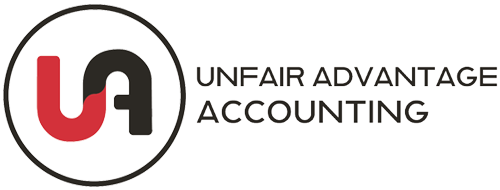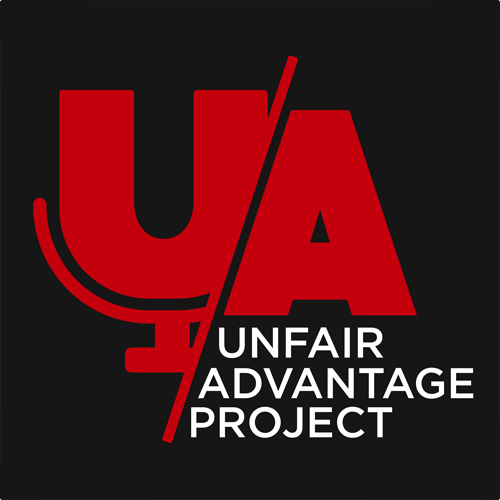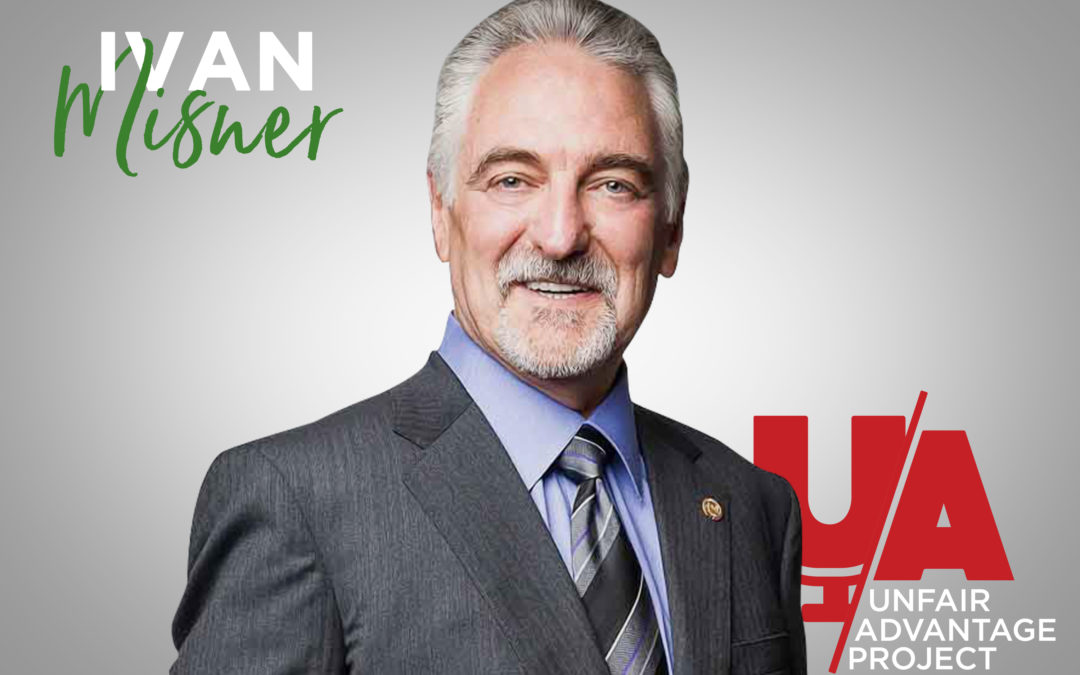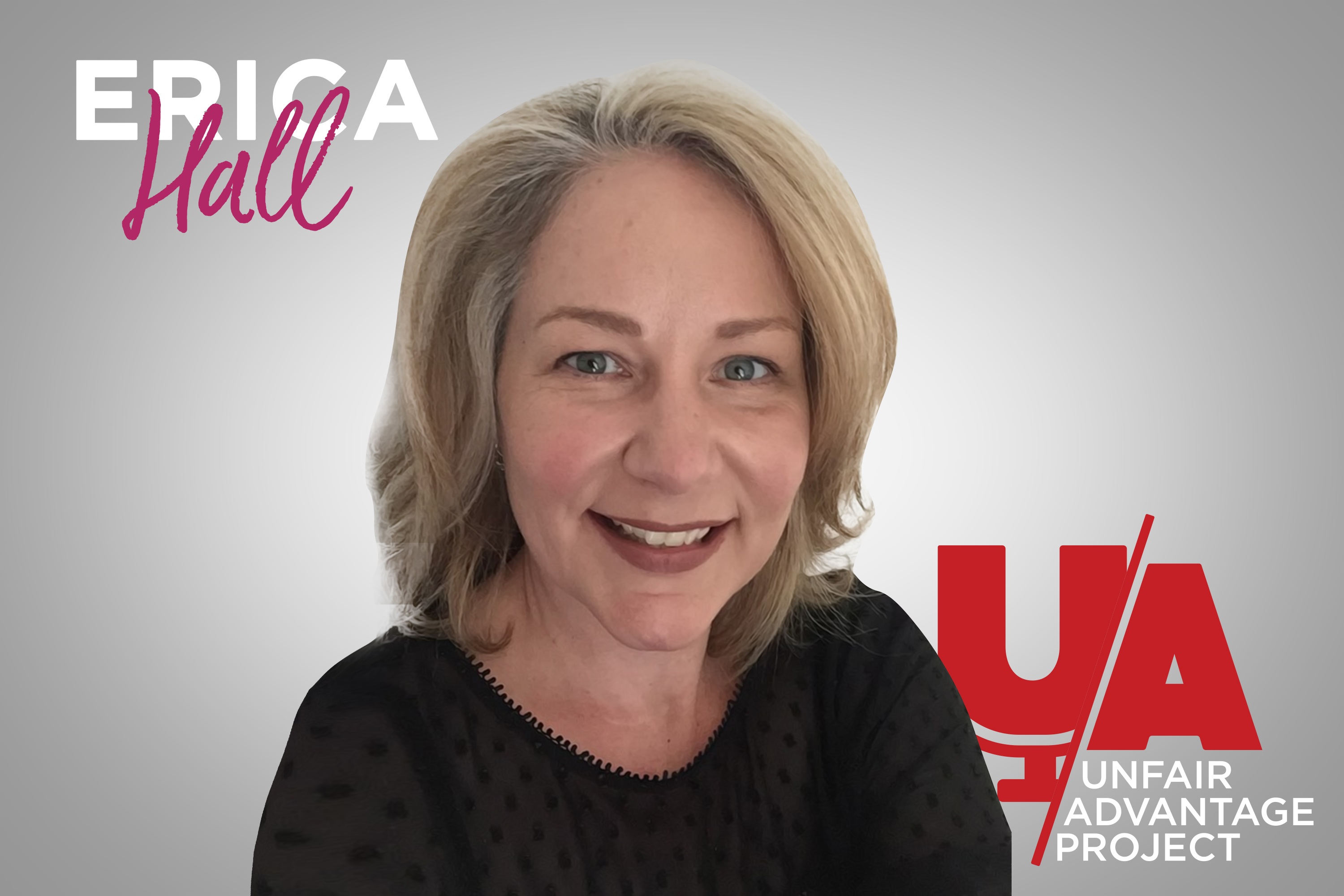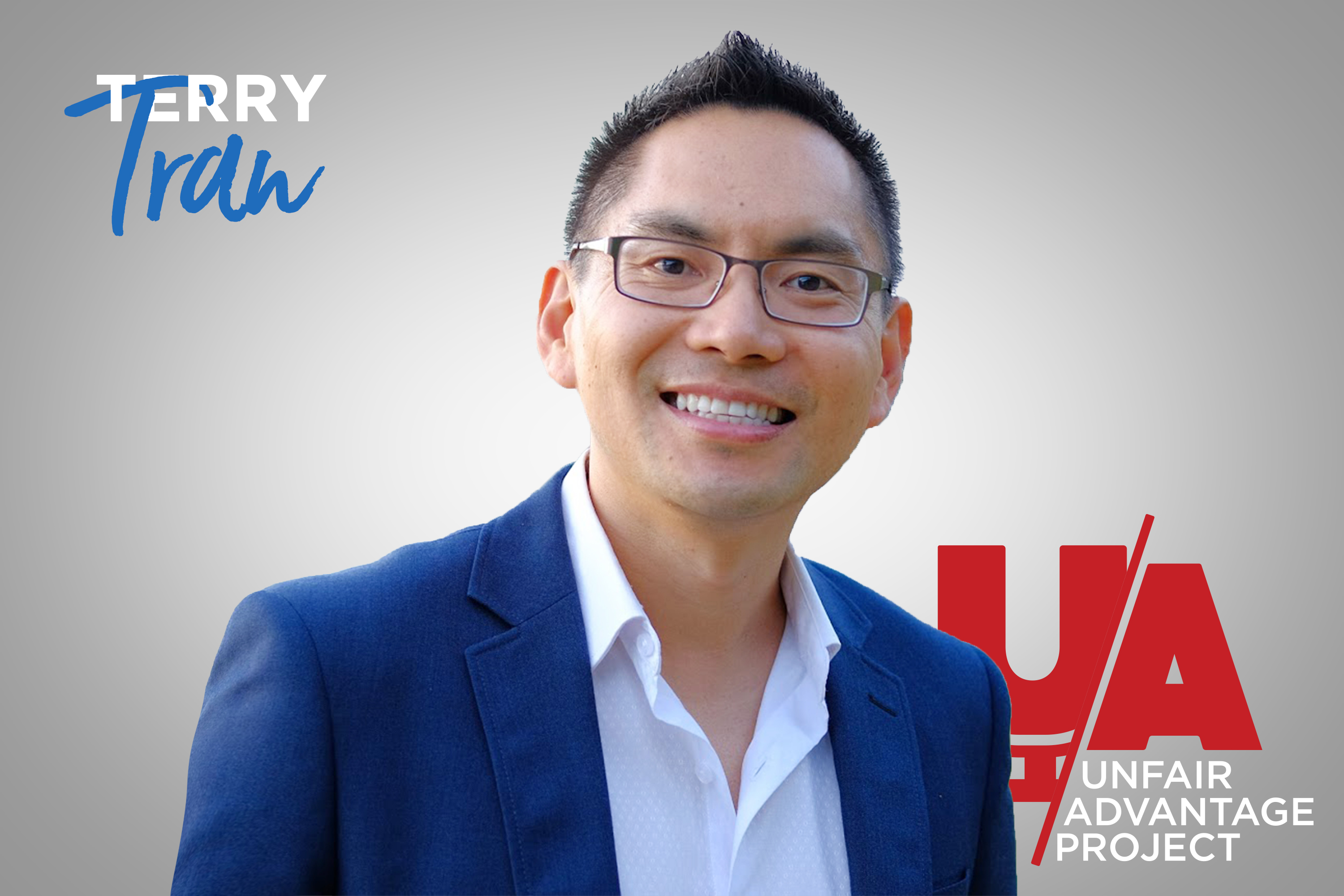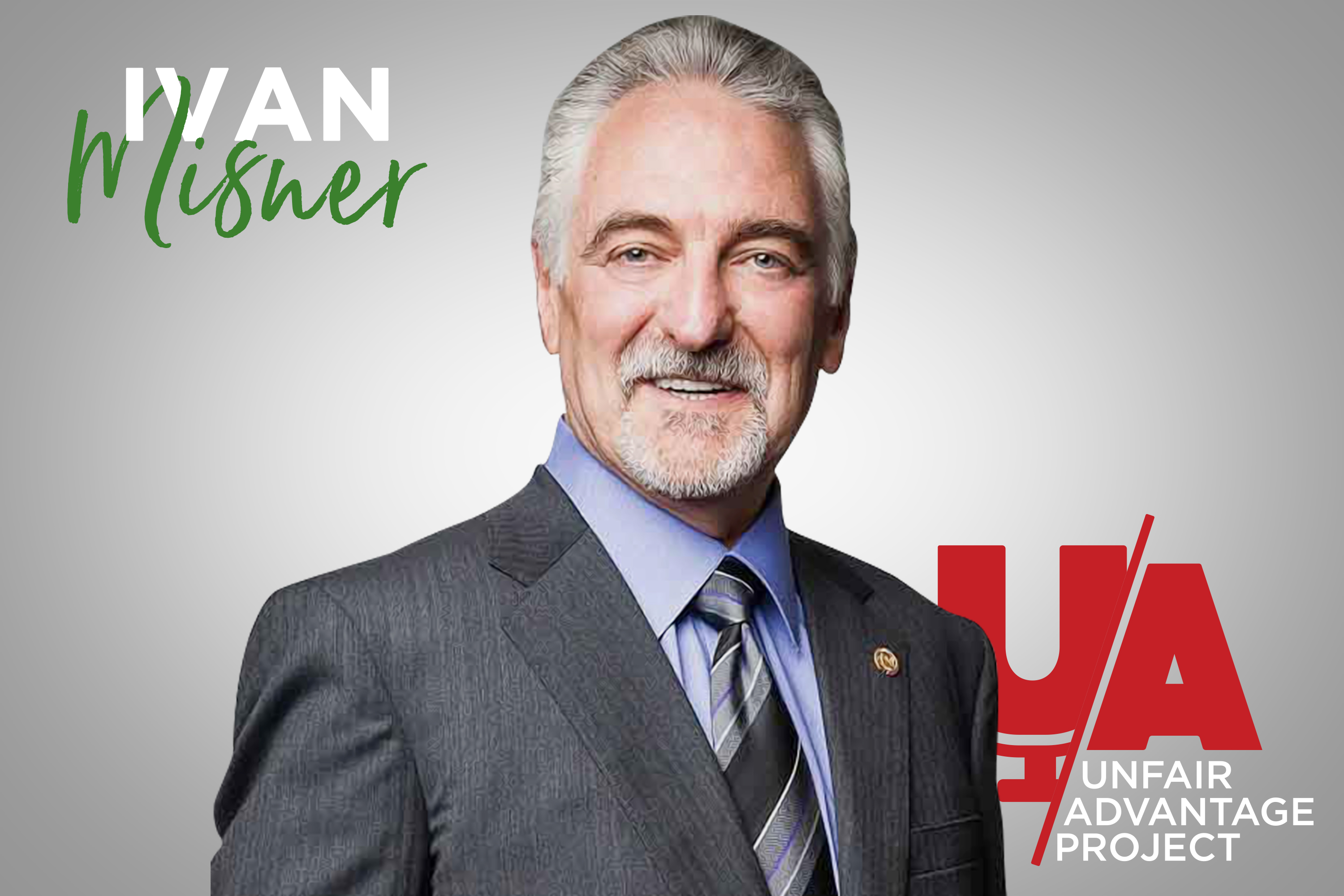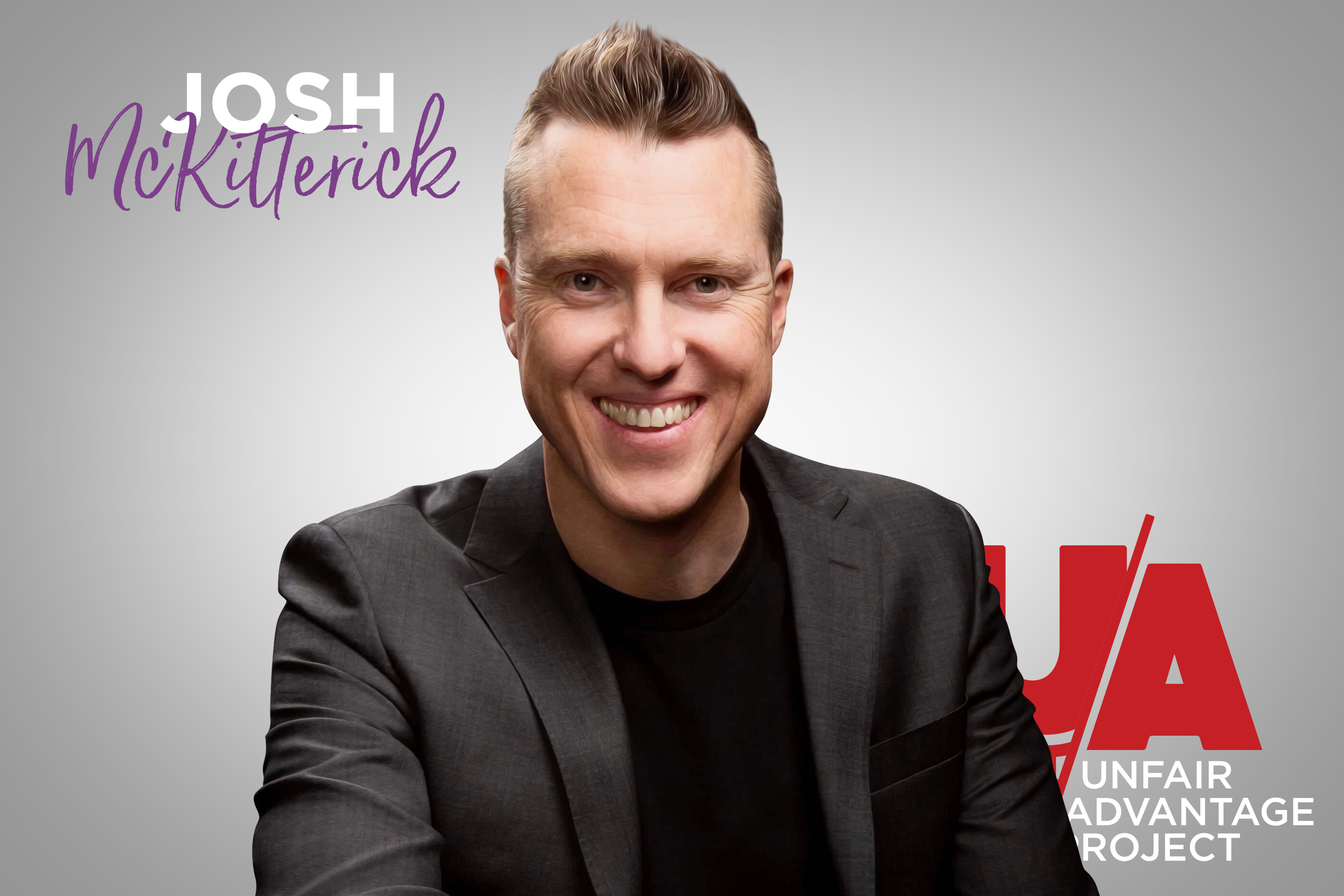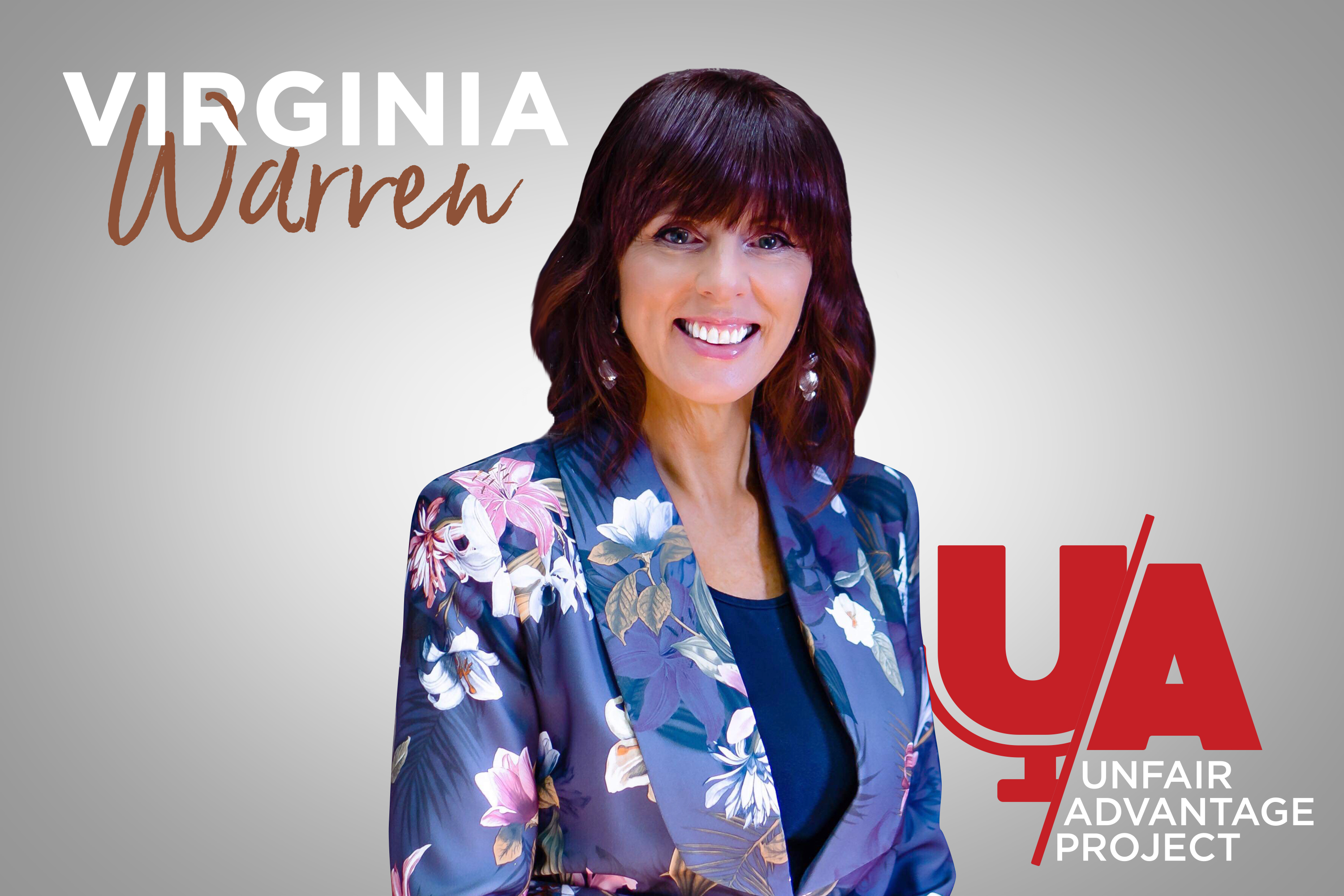Podcast: Play in new window | Download
Subscribe: Apple Podcasts | Google Podcasts | RSS
Show Notes:
Ivan’s personal motive in writing the book. [1:49]
The construct of the room and values. [4:12]
An exercise on identifying who’re still in your room. [5:08 ]
What is a deal breaker? [7:21]
What is Ivan’s weakness? [9:38]
2 main aspects on hiring in business. [13:05]
Great example of a deal breaker. [15:31]
Some of Ivan’s core values. [18:09]
What are Engines and anchors in business. [21:55]
What are Ivan’s insights while writing his book? [25:32]
How to say no? [30:06]
What are great techniques to say no? [31:14]
What are the distraction or mission concept? [33:55]
Become an expert in the problem concept? [38:58]
What is Semantic Differential Questioning? [40:30]
What is Ivan Misner’s secret to life work balance? [41:55]
Techniques in creating a life of harmony. [43:41]
What is a process of discernment? [48:16]
What are the consequences of not following Ivan’s advice? [49:11]
What is a doorman mentality? [49:59]
How to deal with people that are your family? [51:47]
Follow Ivan Misner:
Website – https://bit.ly/2MoYyIG
Twitter – https://bit.ly/2wecLgD
LinkedIn – https://bit.ly/2PkmPNP
Follow BNI:
Website – https://bit.ly/2DfYl2g
Facebook – https://bit.ly/2wcsQmV
Twitter – https://bit.ly/2Ml4wKq
LinkedIn – https://bit.ly/2mDVQit
Narrator 0:04
Welcome to the Unfair Advantage Project. Unique perspectives, practical insights and unexpected discoveries directly focused on giving you the unfair advantage. Introducing your hosts Nadia Hughes and Terence Toh.
Terence Toh 0:23
Welcome to the Unfair Advantage Projects. I’m one of your co hosts today. I’m Terence Toh, from StrategiQ Corporation and next to me I have Nadia Hughes. Good morning, Nadia.
Nadia Hughes 0:31
Good morning Terence and I’m from Unfair Advantage Accounting and I’m very happy to be here
Terence Toh 0:36
And fairly recently rebranded to Unfair Advantage Accounting, well done. This morning we have a great guest. Second time on and he’s the founder and I think chief he’s a chief visionary officer of BNI
Ivan Misner 0:51
Visionary officer, yes.
Terence Toh 0:52
Yeah, of BNI and here today to talk about a great book that he’s written recently called Who’s in Your Room?
Ivan Misner 0:58
Thanks to both of you for inviting me back. It’s good to know that I passed the audition.
Terence Toh 1:06
It’s pretty hard not to invite you back after the way the last episode went. Actually, it was a lot of fun.
Ivan Misner 1:12
I’m happy to be back.
Nadia Hughes 1:13
I really got good feedback. And now I meet people and they said, Oh, you find your biz. This one? Yeah. How did you get him on the podcast? Oh, it was very hard. I don’t know. How did you get him?
Terence Toh 1:26
Well, I think the normal thing you asked.
Ivan Misner 1:28
Yeah,
Terence Toh 1:30
Yeah. It’s amazing.
Ivan Misner 1:32
What a thought.
Terence Toh 1:32
Yeah.
Nadia Hughes 1:35
Okay, Ivan I just have a first question. Why did you write this book? Made you think of this book, because there are two co authors. But I want to know what your personal motive was?
Ivan Misner 1:49
So the concept of the book wasn’t mine originally it was Stuart Emory, my co author. And he shared at an event I went to, I’m a member of an organization called the Transformational Leadership Council. And he shared the concept of the room and you know a couple of minutes, I’d love to share the general construct of the concept. But he shared this and I thought, Oh, my goodness, this is this applies to networks. This applies to the kinds of people that you surround yourself with in networks. And of course, I’ve been running BNI for 34 years. And it’s, you know, it’s the world’s largest face to face networking organization and I’ve experienced the kinds of things he was talking about and I was so impressed with the concept. I went up to him and I said, you know, you got to write a book on this. And he said, Yeah, yeah, I’ll do it. He didn’t do it and I kept bothering him. And finally he said, Oh, heck, yeah, you want to do the book with me. And by the way, he’s from Australia. He’s Australian. And finally, he said, Oh, heck, I’ll actually use Australia. He didn’t say heck, he said, you know, oh, yes, I’ll. Yes, stop bothering me. We’ll do it and so he and I, with Rick Sapio produce this book.
Nadia Hughes 2:57
I opened it, it is book and started to read it. And I was thinking to myself, it’s one of the most important exercise I should be doing and advising other people doing whenever they are on crossroad, or whenever they have difficulties with reconciling something in their lives and it just hit me really hard that it’s off recent and this book was a confirmation of my suspicion that I was doing something wrong. That’s why I was running out of path.
Ivan Misner 3:33
Yeah.
Nadia Hughes 3:33
And the biggest revelation happened to me in the last month was being somewhere which looks like very successful, and thriving enterprise, yet you feel not home, you don’t feel comfortable, and you feel feeling completely drained and exhausted, yet you’re not find that satisfying game you success coming your way and this discovery really hit me hard when I just read this word that I was acting outside of my values.
Ivan Misner 4:05
That’s critical, absolutely critical. Let me give you the construct. So for your listeners, for your viewers, the construct of the room and then let me tackle values because that really comes second. Imagine that you live your life in one room. For those of you who have not read the book, imagine you live your life in one room and that one room has only one door and that one door is an enter only door so that when people come into your room or into your life, they’re there forever. You can never get them out. Now, luckily, it’s a metaphor but and I would argue it’s probably more than a metaphor. But luckily, let’s just say it’s a metaphor. If it were true, Nadia and Terence if it were true, would you be more selective about the people that you let into your life?
Nadia Hughes 4:57
Of course, it’s a confined space, and you don’t want anybody there you want.
Ivan Misner 5:02
You want the people that you enjoy having around you and everybody says that. So here’s the thing, I think it’s more than a metaphor, because I’d like the two of you and if you’re watching this or listening to this, I want you in the audience to do the same thing. I want you to think of somebody who you’ve gotten out of your life, because I’ve had people say to me, I can get him out of my room, I can get him out. I want the two of you to think of someone you’ve gotten out of your life, who was toxic, difficult, annoying, just did not like being around them, and you got them out of your life. Now, I’m not going to make you share the names. But do you have somebody in your mind?
Nadia Hughes 5:05
Oh, yeah of course.
Ivan Misner 5:43
Everybody does.
Terence Toh 5:44
Yeah, yeah.
Ivan Misner 5:45
So if you’re listening to this, I want you to think of someone, here’s the deal. If they’re still in your head, they’re still in your room. Because the experiences that you had with that individual will stay with you for the rest of your life. One of the people that we interviewed was Dr. Daniel Amen who is well known as a neuroscientist and psychiatrist. And, and he said that the people that you build relationships with their fingerprints are all over your brain, you can never delete those memories. And, and so it’s so important to bring people into your life, that add value to your life, and don’t take away value from your life and so you’ve got to be more selective. But what do you select based on? And Nadia, that was your point. It’s got to be values. When I talk to people about values, it’s like deer in the headlights, you know, I say, well, tell me your top seven values. And people like, honesty. Okay, great. That’s one, give me six more and they’re flustered, they don’t know what to say. You can’t determine who you allow into your life, unless you get clear about your personal values and when you understand your personal values, then you know what kind of people to bring in your life. Here’s a technique that I talked about in the book that you can start the process with, called deal breakers. So I’ll give you my one of my deal breakers and then maybe you guys will share a deal breaker. A deal breaker is something where this is not the kind of person you want around you and I actually came up with this one. You know toxic angry people, I had that as a deal breaker for a long time. I came up with a whole new one, when I wrote this book, that just hit me like a ton of bricks. Drama, people that are dripping in drama. That their whole life and we all have a little drama, I have a little drama. But you know what I’m talking about people that every day is drama, that’s one dramatic event after another and I realized it seemed like people like that around me and that became one of my deal breakers. What are some deal breakers for you two?
Nadia Hughes 8:01
No, before I do it. I want to ask you one interesting thing, there is a bit of cross road with other school of thought. And if you please allow me to do this to you, when we don’t like something in other people, it means it’s something we have deeply entrenched inside ourselves and we don’t like the straight about ourselves. So when I’m talking about my deal breakers, I have to be very careful why they are my deal breakers. Is there is part of me also by they seem to start of a deal breakers. And I have to be very careful when I’m picking my deal breakers. Because if they ultimately is the one, I have to make sure that I absolutely have none of it inside me.
Ivan Misner 8:54
Right? Well, listen, that’s definitely true sometimes. But I think people who are self aware if you are reasonably self aware, you have a pretty good sense of your strengths and weaknesses and if you recognize that a deal breaker for someone else, you actually have some of those. You’re self aware enough to catch that. I consider myself reasonably self aware. I know what most of my strengths and weaknesses are and in that case,
Nadia Hughes 9:23
What are your weaknesses?
Ivan Misner 9:24
What are my weaknesses? Gee, I don’t know if I want to share that on.
Nadia Hughes 9:28
You’re out there, your just Ivan Misner. You’d become a little bit of this more knowledge. You just want to break it back to basic that you still human being?
Ivan Misner 9:37
Yeah, absolutely. I’m a human being. So, I think one of my weaknesses is that I’m so structured, that getting off of plan is frustrating for me. I plan my spontaneity, I tend to be very organized. I mean, look at this, my desk, this is the way it looks all the time. I’m organized, systematic, and that’s about the strength and a weakness. It brings structure to my life. But you know, when chaos is thrown in, I may have a little difficult time dealing with chaos.
Nadia Hughes 10:06
Do you have a paper bag and you breathe in it?
Ivan Misner 10:08
I don’t but I meditate.
Nadia Hughes 10:10
Okay, so I just want
Ivan Misner 10:12
I meditate in everyday, what’s that?
Nadia Hughes 10:14
I just wanted to see this image of you having panic attack or was it? Things that move.
Ivan Misner 10:20
I don’t usually have a panic attack but I do meditate and I do every day, that’s one of my daily rituals. I get up, I exercise every morning and then I have a steam shower. Every house I’ve owned for the last 30 years, I’ve had a steam shower in it and I spend 20 or 30 minutes in the steam shower, just kind of relaxing, meditating, thinking, sometimes I just clear my mind. Sometimes I’m thinking about an issue, I find that sometimes I just come up with some concepts, some ideas I’ve been I’ve been, you know, knowing on an issue and just going in there and relaxing boom, an answer will come to me. So that those are some of the kinds of things that I do. But yeah, I tend to a little too structured.
Terence Toh 11:04
Ideas in the shower can be. It is it’s just a great place to get it. I mean, but I get ideas and apparently we discovered on a previous episode recently that, you know, I mean, I surf and I mountain bike a bit and you know their forms of meditation, because you’re an absolute focus state, you can’t be thinking about all sorts of things. So and I find I get a lot of great ideas when I’m out there.
Ivan Misner 11:27
Right.
Nadia Hughes 11:29
Was meditating over boiling eggs.
Terence Toh 11:31
That’s true.
Nadia Hughes 11:32
The moment you fall into a state of being mesmerized, you are meditating.
Terence Toh 11:36
I think you know to go back to Ivan’s question, deal breakers.
Ivan Misner 11:42
You almost got out of it. I saw that.
Terence Toh 11:44
Yeah, no, I had no intention of letting interviews get out of it.
Nadia Hughes 11:49
I find this deal breakers very confronting.
Terence Toh 11:51
Good. Mine is probably what you said. I think initially Ivan, mine’s really toxicity mines really, you know. I kind of think in a way that’s connected to drama as well, you know, in a way at some level, but it’s definitely just, yes, that level of toxicity that that’s an absolute deal breaker and you can see it here it feel it every sense.
Ivan Misner 12:16
But here’s the problem with toxicity or drama and I was guilty of this. I would meet people and I knew they weren’t real positive or I knew they had drama and I still did business with them. I still did business with them. Because they were good at what they did. So if you’re going to have to deal with that, yeah, I could deal with all the drama and I discovered as I you know, I earned this gray hair. I got more gray hair. I discovered that, you know what? Life’s too short. I don’t I don’t want to deal with that craziness in that drama and, and so yeah, alright, so toxicity in deal breaker.
Terence Toh 12:54
So we’re going to get to Nadia in two seconds but this is a really interesting point. I think I bought this in with hiring in my businesses as well and I speak with my clients about this and how they’re hiring and their, there are two main aspects that are higher on, there’s attitude and aptitude.
Ivan Misner 13:09
Yep.
Terence Toh 13:10
But to me attitude, is such a big thing and to me attitude trumps aptitude every single time because
Ivan Misner 13:18
You know I’m inclined to agree
Terence Toh 13:19
with somebody who’s got the right attitude to something they can learn to do almost anything, you know,
Ivan Misner 13:23
Yep. Yeah, you can’t teach attitude. Now listen aptitude in some businesses. I mean, you know, if you’re a brain surgeon, probably I don’t
Terence Toh 13:31
donate some
Ivan Misner 13:34
But for most mere mortals, like like me and others, it’s about attitude. I can’t train someone to have a good attitude and I don’t have time to send them back to mom to get retrained. So aptitude if somebody is willing to learn, I can teach someone how to do something, but I can’t teach them attitude. I agree with you.
Terence Toh 13:53
Yeah, absolutely. All right, Nadia.
Nadia Hughes 13:56
Okay, what I find awful is in my life when I’m confronted with dishonesty.
Ivan Misner 14:03
Yeah.
Nadia Hughes 14:03
People lie to me and I can see through lies and I just look at them and I’ve just why are you bothering because I read body language. It’s probably the most the it’s a time when I lose all respect as a human being when people lie to me bluntly when their entire body language says otherwise. And as I think I do not like is manipulation, being manipulated into anything because again, as I I see the intention of the human being because my main think what is behind why are you asking me to do this? I don’t focus on form as much I’m more focus on intention behind it. And then that’s the one I you have to spell it out for me, because I found this with fascinated and never met before, but method in your book, because I haven’t heard it, one upmanship.
Terence Toh 14:53
Oh, you haven’t heard that?
Nadia Hughes 14:54
No, it’s first time I heard this word. What does it mean?
Terence Toh 14:58
It’s probably more of a concept than a word, isn’t it?
Nadia Hughes 15:00
What does it mean, one upmanship?
Ivan Misner 15:03
That means you do something, I’m going to do something better than you and then you do something. Well, I’m going to do it better than you. You’re trying to get one up on someone else.
Nadia Hughes 15:14
I had this gut feeling that that would must might be some this unhealthy competition.
Ivan Misner 15:18
Yeah, it’s exactly an unhealthy competition. That’s a great way of putting it
Nadia Hughes 15:23
Absolutely hated about people because all I’m competing with is myself.
Ivan Misner 15:28
Yes, I agree completely, you need to compete with yourself. Let me give you one other great example of a deal breaker, because deal breakers and values, you can have them in relationships that you have with someone. My wife and I, I think we said this off air married 30 years this month and one of the deal breakers that we have together as a couple is that we only spend time with other couples when we go out with another couple. We only build relationships with other couples who will love and respect each other. They have to love and respect each other and when we started thinking about this, we realized that we had some friends who did not treat each other with respect, or did not treat each other with love and we’re like, you know, why are we friends with these people? Now look, you know, I’ve been married long enough that I’m maybe I haven’t always been as respectful as loving as I could be or maybe my wife hasn’t. I’m not talking about the occasional thing. I’m talking about this the normal relationship between that couple? Well, we’ve decided that the couples that we want in our room have to love and respect each other and if they don’t, they don’t generally do that, then that’s a deal breaker. We don’t have relationships with those people.
Nadia Hughes 16:42
Coming from this one, I want to ask you, so what is most important to know exactly what you want to have or what you don’t want to have? Where’s the focus lies?
Ivan Misner 16:52
Yes.
Nadia Hughes 16:53
Yes to what, both?
Ivan Misner 16:55
Yes to both. You know, it’s it’s the yin and the yang, you got you have to, you have to understand both. I think I’ll tell you, what’s easier for most people is to know what you don’t want, it’s easier to start there. Because it’s harder for people to figure out what they do want. Because there’s just so many things to choose from, you know, what are my values, I got to pick through all these I got to rank order them, that’s harder. What’s easier are the deal breakers. So we recommend you start with deal breakers and then work on your values. Now in the book, we have exercises that you can do. There’s an exercise in the book that you can do and then there, there are links, where you can go online, all free. You can download some stuff to get better idea of what your values are. We do have a link to a friend of ours, Tony Alessandra. He has a system that there’s a small fee but that’s his process, not ours and she can get a real good sense of what your values are. So start with deal breakers then go to values.
Nadia Hughes 17:53
I gotta look at your links, because I was curious to have a look at it just as a very comprehensive they exercise she’s offering to do.
Ivan Misner 18:00
Yeah.
Nadia Hughes 18:01
And I was thinking I put it on my mental notes.
Terence Toh 18:04
To do list.
Ivan Misner 18:05
Yeah, let me give you a few examples. Some people understand what we’re talking about. So some of my core values, I’ve incorporated into my business givers gain this philosophy that if I, if I help you, you’ll help me that’s that’s one of my principal core values. Personally, a lifelong learning education is extremely important to me. Positive attitude, this is one of my core values. Accountability, that’s a core value of for me. So these are some of the kinds of things that are important to me.
Terence Toh 18:33
I love to go a little bit deeper, sorry, I don’t mean to cut you off there but I’d love to go a little bit deeper into accountability.
Ivan Misner 18:38
Accountability, I think it’s very easy for people to hold other people accountable but they have they don’t hold themselves accountable and I’m a real believer that you have to you have to hold yourself accountable for your behavior. The older I get, the less I believe in words and the more I believe in behaviors. And behaviors are really what holds people account of how you behave, is how you should be held accountable, not what you say it’s easy to stand up and say anything, but it’s how you behave that really matters. And I think we say this in the book, if someone were to follow you around with a video camera and video tape you all week, what would they observe? The things that they would observe are the values that you are living. They may not be the aspirational values you have, but they’re the values you’re living and you have to ask yourself, are these really the values that I want to live?
Nadia Hughes 19:44
I really like is I feel the questions. If it would be your value, let’s say your value is a teamwork. How would you be acting? If it really mattered to you? Would you be doing certain things? So you actually introducing this book really good what I called filtering process. When I, if I’m very confused and think it’s a bit vague, I can actually go and check it against the those questions and benchmark whether I’m congruent to this values or not and that’s what I have been doing. It’s quite a practical book, in this sense, despite the fact that the dettaching quite obscure concept for human kind.
Ivan Misner 20:25
It is an obscure concept and we actually had the book. The book was up to 45,000 words. It was three times longer than it is now and we realized it was a lot of stuff but if you had to dig through a lot to get to the heart, and we took a whole year to cut it back from 45,000 words to 15,000 words. We made it much shorter, very actionable. Okay, here’s the concept, now go do these five things. Here’s another concept now, do these five things. So that people can read the book in two hours, and they can apply it. The hardest part is sitting down and figuring out at your values, that’s the hardest part. But you got to behave yourself and do your homework, you got to do your values.
Nadia Hughes 21:06
I have done list of my values. So I’m all good. That’s book actually prompted me to do this and I also understood that when I do values for my business, they have to be in line with my personal values as well.
Ivan Misner 21:22
You do, they have to be resonant with your personal values. If they’re dissonant with your personal values, then you’re not going to enjoy your work.
Nadia Hughes 21:30
Exactly and that’s what I have found for myself. Another very interesting, can we move on in a book?
Ivan Misner 21:37
Yeah
Nadia Hughes 21:37
Love the concept, and Terence today in the morning shared with me the same he have really enjoyed this, engines and anchors in life.
Ivan Misner 21:45
Yeah.
Nadia Hughes 21:46
Let’s talk about these co engines and who I am because and I will tell you when I actually put the book aside and start laughing.
Ivan Misner 21:55
Well, this comes right out of work I’ve done with BNI and years ago, I wrote a piece about engines and anchors and how people in networks. I saw people in the room who they behaved like engines, they drove the chapter forward, they got people excited, they got people motivated, they made the group as a whole better. A great network, the sum of the whole is greater than the individual parts. It those individuals by themselves cannot achieve what the whole group does and in almost every case, there were a handful of people in that group who are engines, and they were making the whole better than the individuals and I recognize them as engines and at the same time I recognize that in some groups, there were anchors. These were people that were just holding everyone back and they were complaining and they you know had one problem after another, they didn’t think follow the system. And those people were helping that that particular network fail, and the worst and I think I mentioned it in the book, the worst is the engine with an anchor attached and they’re driving you in the wrong way. You know, you’re trying to go this way but they’re holding your back, that’s the worst. So you got to look at people are they, and here’s here’s the question you ask yourself, is this person, is their behavior holding me back or holding my network back or are they making me a better version of myself? Are they improving who I am? If they’re improving who you are, that’s an engine? If they’re holding you back, that’s an anchor.
Nadia Hughes 23:50
When I tell you one foot, it’s well all I want to say about that is I mean, but one sentence really make made me laugh. No one thinks they are an anchor.
Ivan Misner 24:03
Yeah.
Nadia Hughes 24:05
Making anybody recognize you excellent getting gas is very hard. So it’s not I can’t imagine, comfronting and can you put about it the weather chapter or your business? You actually an anchor.
Ivan Misner 24:19
Yeah, I don’t think I’d say that to them. I don’t think that would go over too well. But you have to recognize it, you have to recognize that you’re dealing with an anchor and there are ways that you can communicate with them to address the issue, but I wouldn’t call them an anchor that’s counterproductive. You know, in your head.
Terence Toh 24:42
Agreed. I’ve got a question. I started to realize the power of and I think we spoke about this, we touched on this a little bit earlier, how to realize the power of teaching and the power of kind of being able to compiling all of your own thoughts into something like a book, or, you know, building out a program recently, which is like a business accelerator program. And what I found is that, just through that process, I had some really profound insights into myself into, you know, like, just developed a whole lot of self awareness that,
Ivan Misner 25:18
Right.
Terence Toh 25:18
whatever been there otherwise. So I’d love to know, what your insights were what you realized, you know, some of the big profound things that can’t you through this process of writing this book?
Ivan Misner 25:32
So first of all, that’s that sort of self development 401, that what you’re describing there is kind of an advanced self development. And and I started thinking about it for the book, because of my experience in mentorship. In BNI, we have a lot of mentorship programs where we mentor directors, we mentor members and you know, everybody kind of recognizes that it’s good to have a mentor. The flip side of that is somebody’s got to be, be the mentor. You know, people are often happy to be a mentee, they want somebody who helps them but the flip side of that is why would you want to be a mentor? And the answer to that, I think kind of goes with the question you have. You want to mentor, you want to you said you were developing this material to you know, in along the way, it almost improved the kinds of things that you’re doing, because you’re going deep and thinking about it. So let me give you a real life example and this is one of the things I was thinking about when I wrote this book. When my son was since 25, when he was eight years old, he was in elementary school and the principal asked me when she said, Ivan would love to have you coach the chess club because she knew I like to play chess. And I said, Yeah, sure, I’ll coach the chess club but I never really been trained in chess. You know, I was in high school chess club for about five minutes, I never really read books. I just played and I played pretty well. Now I had to teach these kids how to play. I thought, I can describe this stuff. I don’t, I don’t know how to describe it. I mean, I was basically had an unconscious competence and so now I knew I needed to be able to describe it. So what was funny was that I started reading books, when I was coaching eight year olds how to play chess and here’s the amazing thing. I got better. I improved my game, because I coached eight year olds, and I learned, you know, all these moves that I kind of intuitively knew, but I didn’t know what the names were, I learned what a ladder is, what a pin is what a skewer is, I learned all these terms and these names, the openings and all of that made me a better chess player. And I actually had somebody say to me once, I was playing them a game there and he said, wow, you’ve been studying, have you been practicing? because your game is really improved. I was almost embarrassed to tell him yeah, I’m coaching eight year olds.
Nadia Hughes 27:59
Look at your moves.
Terence Toh 28:00
Actually, yeah, just to expand on that a little bit more that I found a great power in taking this, you know, what seemed like very complex concepts and then simplifying them.
Ivan Misner 28:12
Yeah.
Terence Toh 28:13
And as you say, then being able to explain something to an eight year old, in such simple terms that they really understand they get it. Is that, it’s a great power and actually being able to break that down.
Nadia Hughes 28:23
You stealing this from my website, because our motto in our business, if you can’t explain it to eight year old your knowledge is useless.
Terence Toh 28:32
I haven’t stolen it from anyway.
Nadia Hughes 28:36
Because we all think three of us talking pick the number eight, which is you can go now on my website and have a look with
Ivan Misner 28:43
I’m gonna look.
Nadia Hughes 28:46
We launched recently, initiative, basically.
Terence Toh 28:48
So if you’re listening now go and have a look at Nadia’s website. But the point
Nadia Hughes 28:52
Where I encourage staff and everybody around me when you trying to explain something do not explain it from top of your expertise, explain it from the level of knowledge whoever is in front of you.
Terence Toh 29:07
Absolutely.
Nadia Hughes 29:07
And it’s usually the good benchmark, we are eight year olds, we never grow up. Because it’s not our area. We’ve never had experience, therefore we all young on this about to embark on and your mentoring us to go through this. So you technically taking us
Terence Toh 29:22
Yeah, I love that question. You know, why would you want to be a mentor? And there’s a really good answer for it.
Nadia Hughes 29:26
Yes.
Ivan Misner 29:27
Yeah, you improve your own game by becoming a mentor and of course you help others. And hey, that’s pretty good in and of itself, just helping somebody else is, yeah, it feels great. You know, your oxytocin levels go up, when you help someone else succeed but there’s something in it for you as well, and that is that you become better at what you do when you teach others how to do it.
Nadia Hughes 29:49
I absolutely love the fact that you were teaching in a book saying no to how to say no. And there are so many different ways of saying no to. My favorite one was the first one and do you want to talk about it and about?
Ivan Misner 30:06
I would, I’d love to sure. Look, first of all, no can be a one word sentence. You could say, no. But because I run a network, I don’t like burning bridges. I like to keep relationships that I have and I don’t want to I don’t usually try to upset people unless it’s somebody I just don’t want to work with at all and even then I don’t want to burn bridges. So the first technique we talked about in there is a technique that I use often. And it’s this, you know, if I said yes, I’m afraid I would let you down. And that’s a very powerful technique. You’re saying no, but you’re saying no, because you don’t want to let that person down and I don’t like letting people down. I mean, even if it’s not a close friend, I don’t I don’t like letting people down. And so and then I tell them why, you know, I don’t have the bandwidth. This really isn’t my area of expertise. I don’t have the time, whatever the reason is, but I don’t want to let you down and if I did this, I would, I would let you down. And people I have found a very receptive to that way of saying no.
Nadia Hughes 31:09
What are your next trick of how to say no, because there are quite a few obviously, there.
Ivan Misner 31:14
There are. So one of them is because I run a network, I really believe in referring people. So a really effective technique is to say, you know, this may not be something that I would be able to help you with, but I know somebody that I think would be a good fit, this is the kind of thing they love doing. They might have the time, would you like me to make an introduction to you and that person to see if maybe they would be able to help you with it. And that is a great technique, because you’ve said no to them, but you’ve helped them and I love that technique and whenever possible, I try to use that technique. Another one is to basically give an alternative. For example, I think the example we have in there is if you’re asked if you’re a caterer and somebody a nonprofit says. Hey, would you would you cater our 5K event or this running event? And maybe you can’t afford to cater the whole event, and rather than say, just say, No, I can’t afford it. You say, you know, I’d be I’d be happy to contribute and I can contribute by giving some gift certificates, you know, wouldn’t be able to cater the whole thing, but I could give you some gift certificates. Well, nonprofits, you know, they’re like, Yeah, that’d be great. You’ll do that. Thanks. Fantastic. So there are ways of saying no, by giving a smaller yes. That’s a great technique. Now that one technique, I don’t know if that if it resonates with you guys. Have you seen the TV show, the old TV show, seinfeld?
Nadia Hughes 32:49
Yes.
Ivan Misner 32:50
Okay. So you know, so one of the things we say is whatever you do don’t Seinfeld it. Now, one of the funny things about Seinfeld is that the characters would would, you know, they would just, they’d be asked about something and they would go off on some crazy subterfuge as to you know why they didn’t show up? Oh, yeah, I wasn’t able to make it because I had to take my cat to get a wish corrected me and on the way to the vet, I you know, I got an automobile my tire went flat and then the police came by and I didn’t have a license and then they threw me in jail. You know, they come up with all this crazy stuff. Don’t do all that. Just be honest. Be direct and don’t Seinfeld it.
Nadia Hughes 33:30
That was great one, don’t Seinfeld it. I was instantly remembering all those episodes the. When I came to Australia, a first thing I was watching is Seinfeld actually. One of the first things I must say. Another thing it really like want to zoom in on distraction or mission.
Ivan Misner 33:48
Yeah.
Nadia Hughes 33:48
concept. This resonated with me always having this filter.
Ivan Misner 33:55
Yeah. So one of the things that important, and it actually can help you say no, is for you to understand the difference between something that is on mission for you or as a distraction. Because many times when somebody asks you to do something, what they want is on mission for them, but it’s not on mission for you. It’s not, it’s not part of your value system. It’s not where you’re putting in your time and so you have to recognize things that are on mission or are a distraction and when somebody wants me to do something, that is just not something I’m interested in or or feel that I can add value to, then I redirect them by saying this just is not something I do. I’ll give you I’ll give you a real life example. Many times I have people in BNI I say, I love BNI it’s great, I get tons of referrals. But one of the things that BNI need to do is they need to teach the members how to sell. They need to teach people how to sell because people don’t know how to sell they get referrals and they can’t close the deal and so I say to them. Listen, that’s a great mission. Let me read you our mission, BNI’s mission is to help people increase each other’s business, restructure positive supportive referral marketing platform. There’s no sales training in that. And so the truth is, there are organizations out there who are experts at sales; Brian Tracy, Tommy Hopkins, Jeffrey Gitomer, these guys are the world’s leading experts on sales. And rather than be a bad copy of them, that’s their mission. Let me refer you to someone I know in one of those organizations, and they can help you. And that’s a great example of, that’s not my mission. And if I start going down every rabbit hole that people want me to go down, I’ll never be the success I would like my business to be because I’m chasing all these rabbit holes that people think I should be going down.
Nadia Hughes 35:52
And this is where it’s absolute the negative it is also comes to when you create a business plan I see so many businesses owners not focusing can understand in quest they want to get if they going to take constant detour, which they treat as an opportunity and it could be highly lucrative. Yes, it could be. But what it means is a compromise comes it means you’re not going to get to the destination you initially decided to go, therefore you have to weigh those two, how much will it be contributed to where you want to be rather than destructor?
Ivan Misner 36:29
Right. So somebody else’s opportunities, oftentimes a distraction for you. And so, and that’s one of the reasons why you got to get good with your values, you got to know what your values are, you have to have a clear cut mission for your business, you got to know what that is. And you got to stay on mission and don’t be going down all these side tracks. Just
Nadia Hughes 36:46
phrase very, again, very loud, someone’s opportunities.
Ivan Misner 36:51
Someone’s. Sometimes someone’s opportunity is your distraction. And, and that’s happened a lot to me where people are coming to know, I’ve got this great opportunity and they show it to me, it’s like, that is a great opportunity, I think you should pursue it. But it’s it’s not on mission, for me, it’s not what I do. I have created the world’s largest face to face networking organization, because I am focused, laser focused on building a platform where people can do business through referrals. And I don’t go I just don’t go down a ton of rabbit holes on different businesses.
Nadia Hughes 37:25
And this is a challenge for people when they’re in partnership, because one partner always will come up with one stay focused on what they want to be as a organization and another one will come is those opportunities come
Ivan Misner 37:39
Great opportunity. So I keep this in my desk, because we’re exactly what you’re saying. Because sometimes people talk about this. And I say, look, you want to be successful in business, you got to do six things a thousand times, not a thousand things six times, you got to do six things a thousand times not a thousand things six times, the businesses that fail and I keep this in my desk for this very reason. Or the businesses that are constantly chasing bright shiny objects. Here’s another object, yes, let’s try that. Going after one bright, shiny object after another, rather than focusing on doing six things a thousand times, now what six things? Six things that are on mission for you six things that people your mentors tell you, this is what you need to do the things that you know, are tried and true. Stop looking for some magic, and focus on the fundamentals in your business. And you’ll do well.
Nadia Hughes 38:39
Another thing I really liked and is resonated with me and it’s common, but it’s probably a good old saying, focus on the problem, you will become an expert in the problem.
Ivan Misner 38:54
Yeah, sure that that concept comes from
Nadia Hughes 38:56
become an expert in solution.
Ivan Misner 38:58
Yeah. So that concept comes from a friend of mine, Mark McKergow, he wrote a book co wrote a book called, Solutions Focus and that’s exactly what he says in the book. That if you if all you do is focus on the problem, you will be an expert at the problem. And what you have to do is if it’s okay to talk about a problem, to recognize it, but then you have to be obsessive about the solution, not the problem. What happens is people get so caught up, they get caught up in this feedback loop with the problem, and they just obsess over the problem instead of looking for solutions. So if you focus on solutions, you become an expert at finding solutions. And it’s a great book, it’s called Solutions Focus by Mark McKergow.
Nadia Hughes 39:46
I have a little trick with the clients quite often clients come to you as a problem and that’s what you’re there for to help them. I throw it back at them and I quote.
Ivan Misner 39:56
Yeah.
Nadia Hughes 39:57
If you could do it, how would you do it?
Ivan Misner 40:00
Yeah.
Nadia Hughes 40:00
Better world, in a better world how would you do it?
Ivan Misner 40:03
Right, how would you do it?
Nadia Hughes 40:04
Here’s the solution comes out of them, because they know their business better. I’m just facilitate them and get to this very life question.
Ivan Misner 40:14
Yeah, that’s a great question and here’s a couple of follow up questions. Because I used to do used to be a management consultant. Here’s a couple of follow up things. Because sometimes people will say, Well, I don’t know, I’m asking you. So what you want to do, there’s a concept in survey taking called Semantic Differential Questioning. Where you ask the same question in two or three different ways and if you ask it in two or three different ways, especially if you ask a question or two in between. And so if you say something like, you know, what, what do you think? And and if maybe if they say; well, I don’t know, I can’t, I can’t imagine. Well, if you didn’t know, what do you think it would be? And that’s just a sort of a mindset reset, we are asking the same question but you asked me a different way. I can’t tell you how many times I’ve just changed up the form of the question and I’ve asked two or three times in a row and people will finally give me an answer. Because they just the easy thing is to say I don’t know, the hard thing is to think it through.
Nadia Hughes 41:09
Well, it’s very candid. See, I don’t have to ask my questions twice. Strong get some helps. I’m becoming very close to your favorite topic about balance.
Ivan Misner 41:22
Yeah.
Nadia Hughes 41:24
Unless you want to take us somewhere else.
Terence Toh 41:26
Yeah, let’s do it. Let’s do balance.
Nadia Hughes 41:27
It’s one of the most powerful concepts and let’s let’s I just will start it from telling that any startup, why do people go into business and you startup startups dream is life work balance?
Ivan Misner 41:43
Yeah.
Nadia Hughes 41:44
Please tell us about what these balances about? Do they think it all. And we leave in our full time jobs to grab this life to a lot of life work balance?
Ivan Misner 41:55
Yeah. So you know, I built a company that’s in 70 countries, we have 8,900 groups, over 254,000 members. And people always ask me, they’ll often ask me, what’s, what’s the secret? I mean, how, how do you have any kind of balance in your life? And so I really thought about it for this book and I wrote when I believe the answer is, and and so you know, you’ve read the book, you guys know, but if you’re listening to this, or watching this, here is the secret to balance. I’m going to give you the secret, the balance, ready?
Nadia Hughes 42:30
Build up, build up a bit more.
Ivan Misner 42:32
Forget about balance, you’ll never ever have it. You just not going to have balance. We look at life as sort of the scales of justice, Lady Justice for there’s the scales, and that our personal life is in balance with our business life, which is in balance with our spirituality, which is in balanced with our health and life is just not that way. Especially if you’re a business person. Life is more of a juggling act, than it is a balancing act. So I don’t believe you can have balanced but there’s good news, it’s not all bad news. Here’s the good news. The good news is that you may not be able to have a life of balance, but you can have a life of harmony and it’s more than just semantics. Even the logo, the graphic for harmony, the yin and the yang, if you separated them would be out of balance. So a life of harmony means that sometimes your life is just going to be crazy out of balance. But you have to make sure you understand what your values are and really focused on trying to create a life of harmony. There’s several techniques that I talked about in the book. Here’s the first one, you want a life of harmony, here’s the first one. It’s just a few simple words, be here now. Wherever you are, be there. Don’t be at home, thinking about that project at work it’s gonna get done. Don’t be at work, thinking about the fact that you didn’t spend time with the family last night that you weren’t focused, you know, you weren’t fully present. Be fully present, be here now. Nobody’s perfect at this. But the better you get at it, the more likely you are to have a life of harmony. I mean, I’m gonna give you one, one example and then if you have some other questions on this, I’m happy to do it. Here’s one example on be here now. When my son was 17, he’s 25 now. When he was 17, him and I were sitting down big screen television and we’re playing a Halo. And you know, if you know Halo, it’s kind of a fun game but he was killing me. I mean, he just killing me in Halo, and we’re playing and we were leveling up and that just takes a minute or two for the computer program to level up and and I turned him and I said, hey, buddy, was I around enough for you, as you were growing up? He looked at me like I was crazy. He’s like, what? I said, was I around enough? You’re around all the time. You know, I travel every other week, right? Because I did, I traveled more for almost his entire life. Every other week, I was traveling somewhere different state, a different country and I’d be gone for anywhere from three days to five days, sometimes a week and a half. I said, you know, remember, I travel a lot, right? He looked at me said yeah, but I don’t know. It’s like when you’re here, you’re totally here. I was like, good. He said, and then he said, Can we get back to the game now? And I’m like, yeah, let’s get back to the game now.
Terence Toh 45:29
Really important stuff.
Ivan Misner 45:31
Yeah, but I wanted to hear if this concept and this was, you know, eight years ago or so, this concept of be here now? Did it work for him? I think it did. Because I really tried to be fully present as much as humanly possible when I was actually at home.
Terence Toh 45:50
And the memories that I develop of you, your children, the memories that the children develop of you out when you’re there.
Ivan Misner 45:57
Yeah.
Terence Toh 45:58
If you’re not actually there, when you’re there, their memories will be that you were there,
Ivan Misner 46:03
you’re not present.
Terence Toh 46:04
And I think what you’re getting there is that the fact that you know, he’s memories, like, I spend a lot of time doing my stuff, I travel around a lot as well. But you know, my son tells me my youngest son, now who’s seven. You know, we spent a lot of time we, when we’re hanging out, we play basketball, he loves playing basketball. I started helping with these, I’m not coaching these team, I’m just helping assisting his his coach and he remembers all that stuff and he will talk about that stuff. He’s not talking about the, you know, the times when I’m not there.
Ivan Misner 46:35
Yeah. So this is just one technique. There are many different techniques that one can use, I’ll give you one other technique that I talked about in creating harmony, not balanced, but harmony, you have, contrary to popular belief, you cannot have it all, you cannot have it all. So you have to pick and choose the things that are important to you and that goes back to, values. What are your values? And then you have to learn how to let go and hold on for dear life. You let go of the things that are dissonant with you, you let go of the things that are not part of your values, you let go the things that are a distraction and you hold on for dear life, to the things that are important to you to your to the things that you talk about as your values, certainly my family is as a high value item for me. And so I really strive hard to be fully present when I was there and to do things like when I wasn’t traveling, I was home every night at 6 630 for dinner. Every night, I virtually never missed dinner and that was one of the things that I wanted to hold on to I wanted family dinner to be a family event not, you know, Mom and the kids. And so you got to learn to let go and you got to learn to hold on.
Nadia Hughes 47:58
That’s brilliant. What is basically was the surprise is there is no such thing as balance. The one is strive the most we just have to compromise although it’s not a compromise, it’s probably not.
Ivan Misner 48:12
I don’t think it’s a compromise. I think it’s a choice. It’s all of this that I’m talking about is a matter of discernment, you are deciding what is the most important for you and the people in your room that you love and care for. They may be friends, they may be family. And so what we’re talking about is really a process of discernment and if you can’t have it all, make sure to have the things that are most important to you.
Terence Toh 48:42
Excellent. Okay, we’ve covered a lot. I think anyone listening to this will have had, will now have a great idea what’s in the book and hopefully they’ll go out and grab it and really start to, you know, dive deeper into these topics. That probably the one question that I’ve got is and maybe we don’t know the the answer to this question necessarily. But what are the consequences of not following this advice?
Ivan Misner 49:11
Well, and your room, by the way is your mind, it’s your brain. Your room becomes cluttered and your the door to your room is a revolving door. Where people just keep coming in and you have no control over who comes in and there are so many people who are they’re miserable. They’re absolutely miserable. And I don’t say this to them but what I’m thinking is, if your life is absolutely miserable. It’s like, it’s because you made those choices. These are all choices that you’re making that have consequences that have led you to this part of your life that you just don’t like, and it’s not too late. You can take control. You can sit down and figure out your value. You can create a doorman we haven’t talked about the doorman principle. But the doorman is your subconscious and conscious mind thinking about who am I letting into my room, you create that doorman mentality and you control entry to your room. You learn how to deal with the people that are problems in your room and then you learn how to live the life of your dreams and so you can go from a miserable existence, to an existence where you are in harmony by making good choices and doing it with a plan and not just swinging that door wide open where anybody can come in.
Terence Toh 50:40
I love it.
Ivan Misner 50:41
I’ll leave you with one last thought, you are the curator of your room. You design it, I can’t design it are nobody else can design it. We are the curator of our room, we’re the one who creates the room that we desire and if we don’t know what we desire, it gets created for us. But if you know what you desire, then you have control of creating a room that you really truly love.
Nadia Hughes 51:07
And a very quick one I want to add. A lot of people will objected because there are people in my life which are moms, dads, aunties, uncles, there is actually a very good technique how to deal with those people as well. So your objections are not really valid.
Ivan Misner 51:26
About how about dealing with people that you don’t want.
Nadia Hughes 51:30
People will object to this notion of I can’t just constantly kicking people out of my room, what if they are my immediate family. Well, I can’t get rid of my son was bad habit, or I can’t get rid of my mother, I have to called to you giving good technique dealing with
Ivan Misner 51:47
How to deal with that? That’s right. So here’s, here’s in a nutshell, this is the concept. You may be in my room, but your baggage has to stay out. Now, I wouldn’t say that to somebody in those terms. But that’s the thing. You may be in my room, but the baggage has to stay out. Here’s a real life example and this is in the book. Rick, one of my co authors tells a story about his mother and his mother was very toxic person very difficult and she had a lot of health issues and there are reasons why she was so toxic. But she would just start talking horribly about his brothers and sisters, her children, and she gossip and she was toxic and but he wanted to be a good son and he was one of nine kids and he wanted to be a good son. And so he would call her every week and every week he would hang up and he’d be so distraught because the phone call was horrible. And finally he said to her mom, I love you and I want to talk to you every week and I’d like to have a better relationship. But when you start getting toxic, and you start talking about my brothers and sisters and people I know that doesn’t work for me. And so from now on, when you start going down that direction, I’m going to say this. I’m going to say mom, I love you. It was good talking to you. I look forward to seeing you. We’re talking to you again next week. Love you a lot. Bye and I’m gonna hang up. She was like, Yeah, okay, fine. The very next week, she went right into it. And he said, I mean, it was just like five minutes in and he said, Mom, it was good talking to you. I really love you. I look forward to talking to you again next week. Bye, click. She did it the next week, took a little longer. Instead, they went three weeks and after three weeks, she never did it again. And he said, the best years of my life with my mother, where those last two years where she and I talked every week and it was a healthy conversation and it was beautiful and ended up being a beautiful relationship with somebody who was basically very toxic and it was because I drew a boundary in my room and it basically was and he never said these words to her. You are part of my room, but the baggage has to stay out and he did it in a very loving and caring way. And yes, you can do that too. For the people that are in your life or in your room. I know I’ve done it.
Nadia Hughes 54:08
It’s about boundaries, my room, my rules.
Terence Toh 54:11
I love the concept.
Ivan Misner 54:13
Yeah, thank you.
Terence Toh 54:14
Thanks for sharing that.
Nadia Hughes 54:16
Thank you very much for book and the wisdom in a very comprised form. Thank you for chisel out all those pages he didn’t need. It was very easy to read and let’s look for us. It was really good to get the nuggets straight away, it was express.
Terence Toh 54:35
Yeah, so that was excellent and thanks for being our guest once again.
Ivan Misner 54:38
I’d be happy to be on your show anytime. I really enjoy talking to you guys. If people are interested in any of my material. I have a blog, ivanmeisner.com and you can go there. I’ve been doing a blog for 12 years, twice a week for 12 years on ivanmeisner.com and the book is available at Amazon. It’s available as a Kindle is available as a hard hardcopy book and it’s also available as an audible. So you can get it and the nice thing about the audible is all three of the co authors read the book. Stuart does a chapter, I do a chapter and Rick does a chapter. So all three of us. And here’s here’s a secret about the audible, we actually added content because we had done the book already. So we threw in, you know bonus material in the audible version. So if you’re interested go there and of course anyone’s interested in BNI bni.com.
Terence Toh 55:28
Excellent. Thanks, Ivan. It was great to great to have you on again.
Ivan Misner 55:33
My pleasure, anytime.
Narrator 55:37
Thanks for listening to the Unfair Advantage Project. For more curated resources, visit us at unfairadvantageproject.com
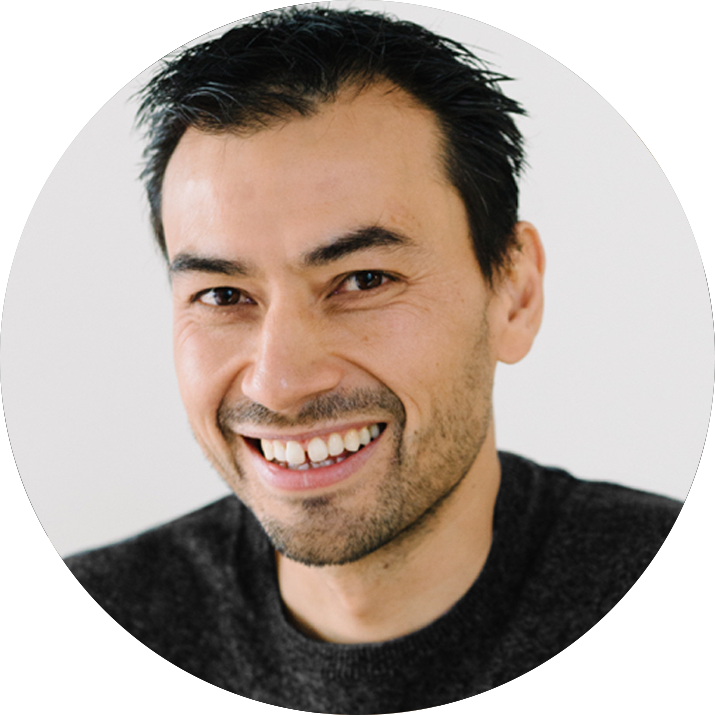 TERENCE TOH
TERENCE TOH
About Us
The Business Coach.
Terence is the founder and Managing Director of StrategiQ Corporation, a serial entrepreneur and experienced business operator who has founded, bought, grown and sold several … see more

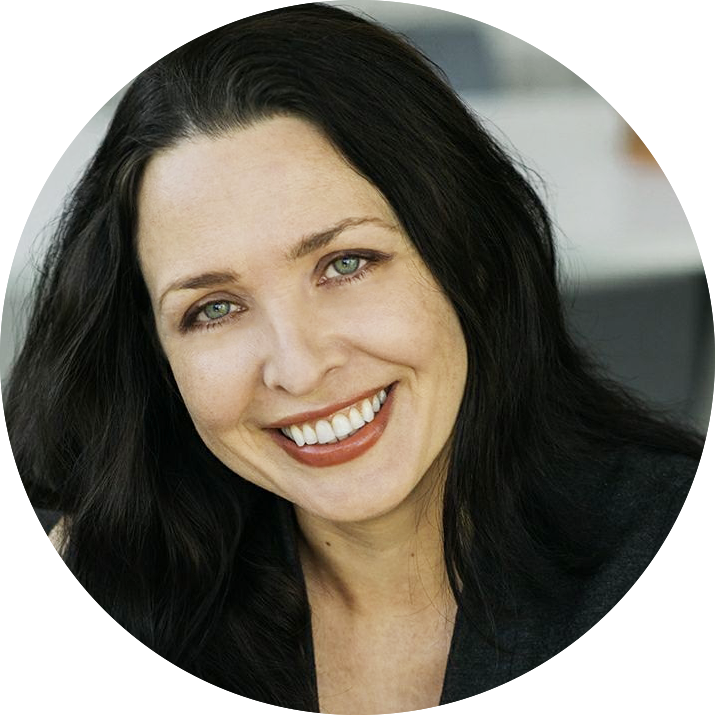 NADIA HUGHES
NADIA HUGHES
About Us
The Super Nerd.
Are you passionate about the ins and outs out of taxation legislation? With Nadia by your side, you don’t need to be. Accounting and financial planning isn’t just her … see more
